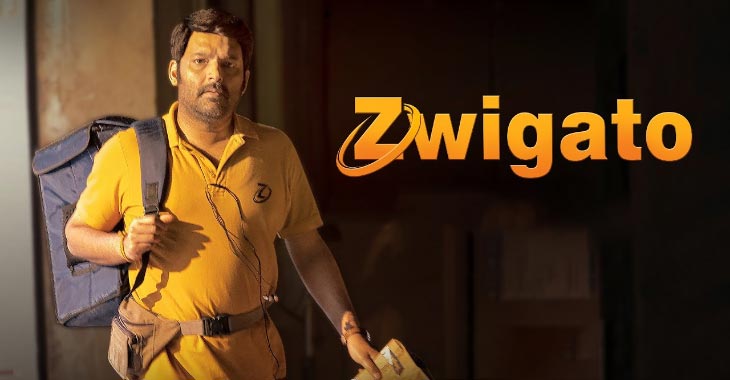“Zwigato” Film Review: Kapil Sharma’s portrayal of gig economy falls short due to sluggish pace
- ByStartupStory | March 17, 2023

Applause Entertainment’s slice-of-life film “Zwigato” directed by Nandita Das released in theaters today but its slow pace was its major flaw. The film follows the story of a food delivery rider who struggles with ratings and algorithms, exploring the lives of ordinary people. Despite its highly topical premise, the texture of the story fell short of expectations, despite promising so in its trailer.
However, Zwigato’s delivery turned out to be too preachy at times, with unnecessary political and religious drama thrown in. The film depicts the plight of delivery boys, but fails to evoke emotions. Nonetheless, in typical Nandita Das style, the film succeeds in avoiding unnecessary melodrama and depicts the struggles of a certain class of society in a subtle manner.
Zwigato, set in the city of Bhubaneswar in Odisha, narrates the story of a delivery boy named Manas, portrayed by Kapil Sharma. After losing his regular job as a factory floor supervisor during the Covid-19 pandemic, Manas struggles to make ends meet as a food delivery man. The movie depicts his daily routine, which includes striving for ratings, avoiding penalties, and chasing incentives to cope with the financial crisis. Alongside, Shahana Goswami, who plays Manas’s wife, contributes by performing odd jobs such as providing massages at wealthy individuals’ residences.
In Zwigato, Manas, played by Kapil Sharma, struggles to make a living as a food delivery man in Bhubaneswar after losing his job during the Covid-19 pandemic. The film depicts his daily life, which revolves around ratings, penalties, and chasing incentives to make ends meet. His wife, played by Shahana Goswami, also does odd jobs to help financially. The film showcases the challenges faced by a delivery man, including requesting customers to rate him and worrying about his ratings. Nandita Das, the director, has effectively depicted the life of a delivery man in the film.
Zwigato features heartwarming moments, such as when Manas corrects a placard slogan, saying “He’s a labourer because he’s helpless” instead of “He’s helpless because he’s a labourer.” Another scene shows a poor labourer chasing Manas’s bike, asking if he could deliver on a bicycle. The film portrays a thin line of class and gender discrimination, and at one point, Manas exclaims, “The owner may not be visible, but the slavery is complete.” Nandita Das has done extensive research to depict the life of a delivery man in a poignant way. Zwigato tackles several cultural and social issues, including politics and patriarchy. However, the script tries to incorporate too many events, and the overall message gets lost. The film could have delved deeper into the lives of delivery workers and evoked more emotion. Despite its potential, Zwigato falls short in delivering a clear takeaway.
The initial half of Zwigato was a bit slow, setting the pace for the storyline. However, the second half failed to pick up, and at times it felt like the story was being stretched. Forced scenes like a protest by an activist or a Muslim delivery boy afraid to enter a temple were added, making the film seem contrived. Manas and Pratima’s future is uncertain, leaving the audience wondering about their next step. Although the ending was a bit perplexing, it ended on a positive note.
After watching Zwigato, viewers are likely to feel a desire to understand the struggles and lives of delivery workers on a deeper level, and perhaps even offer them extra support. The film provides a powerful portrayal of the gig economy, and while it moves at a slow pace, it’s worth watching for its honest depiction of the lives of those in menial jobs. Zwigato would have been better suited for release on an OTT platform rather than in theatres.









